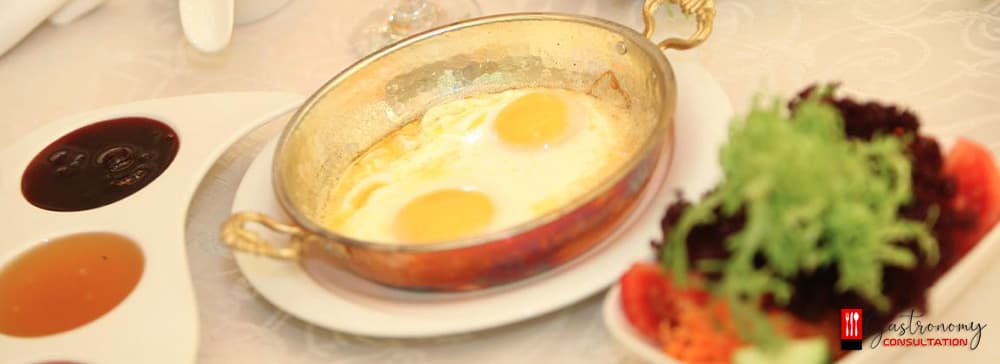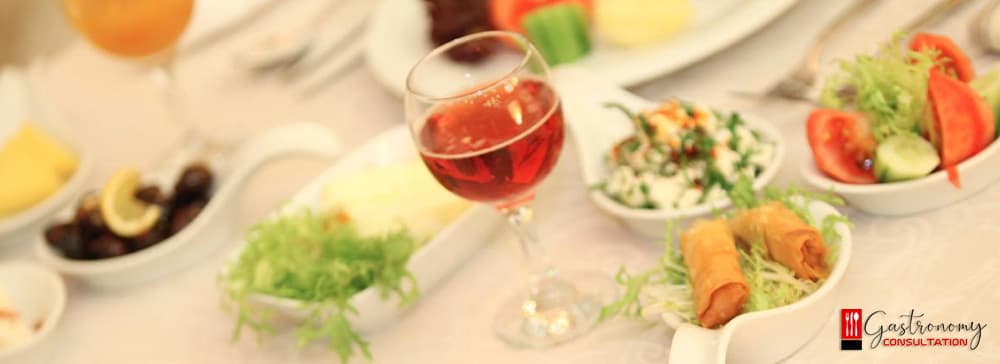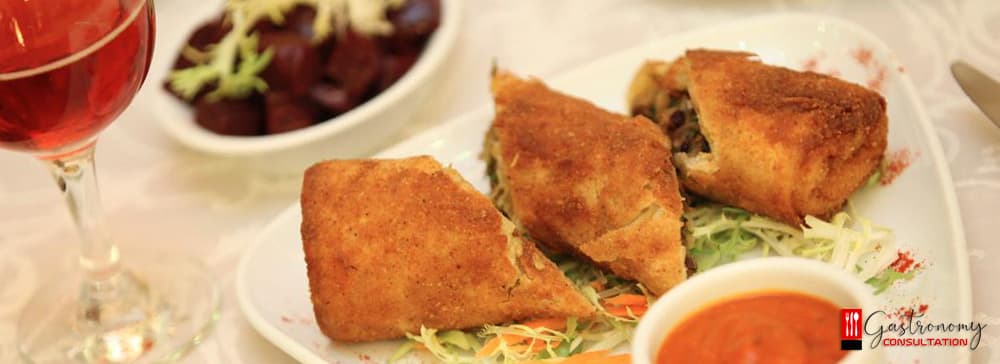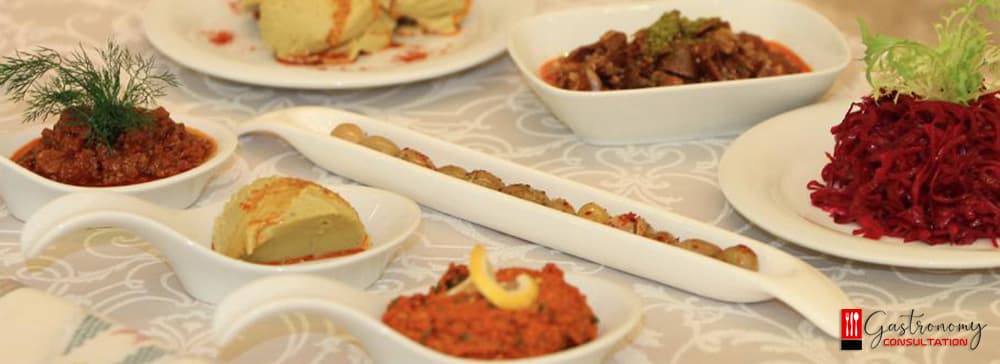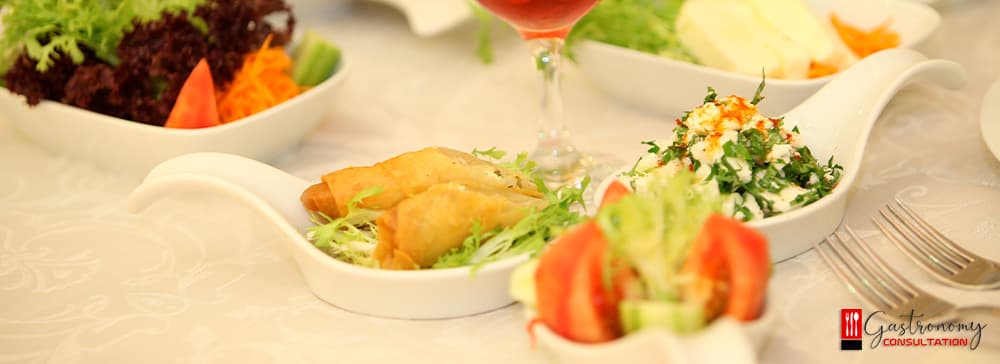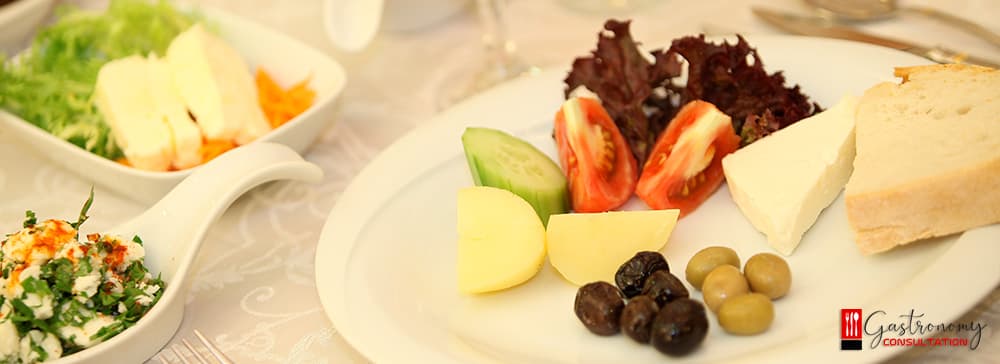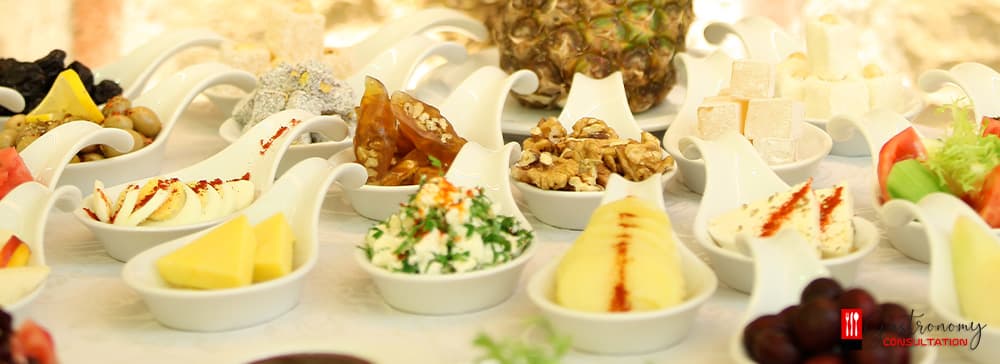In the 11th-13th centuries, in the Anatolian Seljuks, agricultural and horticultural studies, which are the blessings of the settled order, started in certain parts of the Turks, so it is seen that meat and meat products, milk and dairy products, as well as boiled or scrambled eggs, fruit varieties and vegetable varieties added to their tables in the morning....
07/20/2021
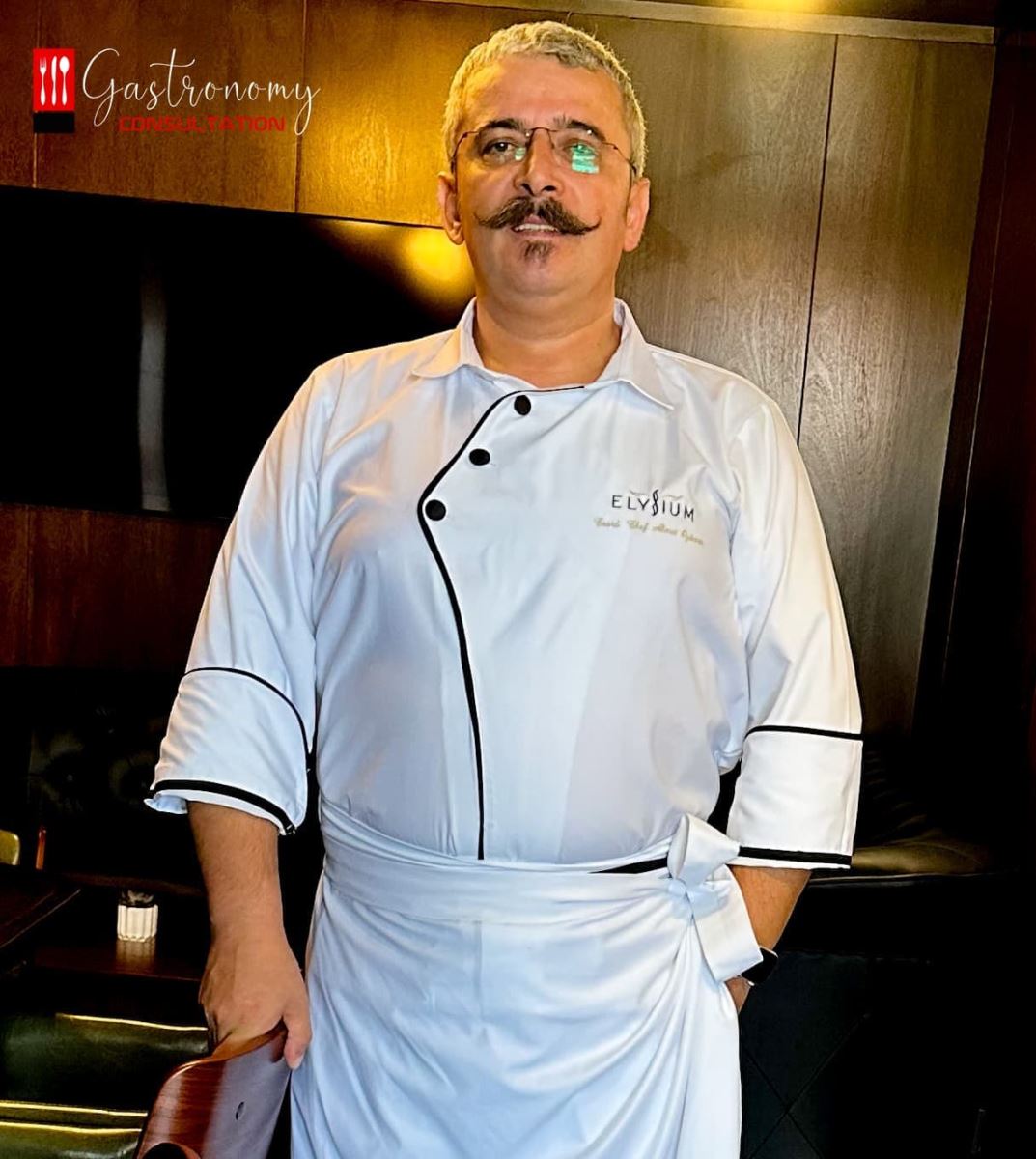 What is Breakfast?
What is Breakfast?
Coord. Chef Ahmet ÖZDEMİR
Note; When did breakfast appear in Turkish cuisine for " Gülşah Karaman " from the Milliyet newspaper in this research article ? I prepared for the news. After it was published in Milliyet, I thought it would be appropriate to publish it on my own website as well as in the culinary library .
According to the earliest known records, there is no such thing as breakfast in
Turkish Cuisine History in Central Asia of the 10th-11th century. There are two meals a day. One of them is bird time. If we consider the history of Turkish cuisine first; When people wake up in the morning (morning prayer time), they deal with their daily vineyard and garden chores and their animals, and when the sun rises a spear-length, it is called mid-morning time. The meaning of this was also interpreted as the end of half of the day.
After waking up, people who are tired after 5-6 hours of work sit at the table, in connection with the economic situation of the household; omaç (noodle soup), tarhana soup yazok meat (pastirma), stuffed sausage (sucuk) herise (keşkek) or the first meal of the day (baslama, zizlama, gavurga and roasted) together with rice with meat and watered phyllo bread with a majority of dairy products. bird) ate.
In the 11th-13th centuries, in the Anatolian Seljuks, agricultural and horticultural studies, which are the blessings of the settled order, started in certain parts of the Turks, so it is seen that meat and meat products, milk and dairy products, as well as boiled or scrambled eggs, fruit varieties and vegetable varieties added to their tables in the morning. .
What is Breakfast in the Ottoman Empire?
During the Classical
Ottoman History period of the 15th-17th centuries, the same habits continued and mid-morning tables with dishes and desserts such as meatballs, dolma, börek, compote, jam appeared. When we consider the financial situation of the people living in the provinces and cities, and with the opening of the first coffee house in 1554, we see that the mid-morning tables become richer according to the economic situation of the people.
This richness is reflected not only in the mid-morning time, but also in the dinner tables. It can be attributed to the introduction of American plants such as tomatoes, corn, green and red pepper to the Ottoman Empire in the 18th century and the discovery of new spices and foods with the development of trade routes (silk road) in the 18th century. .
-When did the term Turkish breakfast and breakfast originate?
Originating from the Kaffa region of Abyssinia, the departure of coffee from the
Ottoman Empire to Europe via India, first to the Ottomans, and then to the Italian cardinals, affected many habits in the food and breakfast culture. Depending on the industrialization and the industrial revolution in Europe, he created working hours and tied it to a standard. Although it appeared as a habit of snacking before starting work, it later created a breakfast culture together with coffee.
Transition to the Alafranga table setting in the 1850s With the opening of Western restaurants and cafes in Galata and Pera in the 1900s, the emergence of products such as sauces, creams, tarts, biscuits and cakes that can be eaten before coffee are some of the factors. The innovations brought by the time in connection with the living conditions of the people, the population structure of Istanbul consisting of different religions, languages, cultures and peoples were adopted by the majority.
The habit of drinking tea and coffee before lunch is one of them, along with the introduction of European flavors into Turkish cuisine , where urbanization has begun . Tea culture, which was preferred by the majority of the people in the Ottoman Empire and became widespread with Hacı Mehmed İzzet Efendi's book "Tea Risalesi" published in 1879, and the snacks offered in cafes and coffee houses to those who want to eat something before drinking coffee in richer segments, are reflected in the home kitchens. Considering the hours of the day, the "feeding one's stomach" before starting work was instrumental in the adoption of the breakfast by the public.
In industrial production in Europe, the "early" breakfast culture, which was formed before us, was created by the pressure of the factory managers on the governments to get more efficiency from the workers. The "early breakfast " has created the need for people living and working in Europe to have a harder diet in the morning, since the workers have to fill their bellies before starting work in the morning and they cannot eat anything until the lunch (lunch break) that the factories give to their staff .
In fact, if I need to give an example from the eastern civilization long before the west, in the 9th and 10th centuries Lilia Zaouali; Even in the book titled "Islamic Cuisine in the Middle Ages", which he wrote inspired by Turkish, Arab, Persian, Greco-Roman cuisines and cooks, the richness of the food that Turks ate at "midnight" and the sun rising from east to west (culture and wealth). But today, many gastronomy experts, gourmets and chefs do not know this and think that everything comes from the west to the east. Because it is taught that way, but that is not the truth.
Early breakfast, which came from the late 19th century Ottoman and industrialized Europe, was not adopted much, and it appeared in Turkish cuisine in a richer way than the variety preferences of European workers in Istanbul cuisine, which was enriched by the land and sea silk road in the morning . Since this is much richer than a breakfast, even though we call it "morning", the cafes in Pera and Galata call it "brunch" and "lunch". Many restaurants in Europe still have brunch on Sundays between 08:00 and 13:30. In many restaurants on weekdays, there are "lunch menus" by creating takeaway menus (less than normal, half a portion) at much more affordable prices, valid between 11:00 and 14:30.
What is the Beginning of Breakfast Culture in Europe?
Depending on the industrialization policy, at the beginning of the 20th century, the morning breakfast culture, "early breakfast", had begun to settle in the current governments' policy and healthy eating habits. In the 1920s, governments and doctors in Europe emphasized the importance of breakfast and stated that starting the day with a healthy and satisfying breakfast would increase energy and performance in the person. Conditions of the day, economic conditions and poverty When the Second World War began, even finding breakfast products became a problem in itself.
-What kind of changes are there between the breakfast made in the present and the past centuries? What are the Biggest Differences?
When did the term Turkish breakfast and breakfast originate?
Today, thanks to the economic conditions, developing technological opportunities and purchasing power and purchasing conditions, breakfast varieties are much more common in world cuisines and Turkish cuisine culture through the markets. Ease of access to ready-to-eat foods further enriched the number of varieties on breakfast tables.
The rules determining the living standards of factory workers in connection with the industrial revolution in Europe were enacted and almost all developing countries in the world accepted breakfast, lunch and dinner as a meal along with "standard working hours" in the last quarter of the 19th century. In fact, we can add early breakfast, which is used by people who work as the 4th meal, not the 3rd meal, to these meals. But "early breakfast" is an option that uses much more satisfying products and has less variety.
When we consider our local cuisine, the contents of "early breakfast" in Turkish culinary culture have 4-5 times more products than the breakfast varieties used in the world. The breakfast meal, which became a standard all over the world in the first quarter of the 20th century, has created the "breakfast culture", which is the combination of early breakfast and lunch, which is preferred especially on weekends, with richer varieties in Turkey than in other countries in the world. The fact that people have a "social right" to get together with their loved ones and have a good time during the weekend, which they see as an option, has made this culture more common.
-How Did Breakfast Habits Emerge in Other Culinary Cultures?
Breakfast culture After the 2nd World War, taking into account the working laws and working hours, I would like to point out that it is the same as a meal in all developed world countries, provided that the differences in the content of the variety are noted. Again, pointing out the similarities, it should not be forgotten that there is a difference between early breakfast and late breakfast, which is preferred on weekends, for those working in some of the world's countries.
In Turkish cuisine culture and Ottoman cuisine for centuries, they put the "bird time" habit into practice by calling it "brunch" for themselves because European countries liked it. But they also added champagne and wine instead of sherbet, although they never had as rich a choice as ours. As a Turkish cuisine chef who has traveled 410,000 km in 3 different continents in the world, I cannot say that there is any cuisine culture in the world that we can compare with the Turkish breakfast culture.
-What are the Breakfast Cultures in Turkey?
This is such an awesome topic. This topic is an ocean. Our local cuisines are different, our regional cuisines are different, even our district cuisines within the provincial cuisines have great differences and they are all richer than each other.
Hatay Cuisine Breakfast ; While there are products such as oiled anklet olives, crushed olives, Sürk (mold cottage cheese), salty yoghurt, olive salad, zaahter salad, pepper with walnuts (muhammara), kaytaz pastry, hot chasamdağ pepper, pepper bread, Antakya cheese, kitte (acur) in Kahramanmaraş . Cuisine : Head and foot soup with sumac sour is served for breakfast.
In Van Cuisine Breakfast ; herbed cheese, feta cheese, dill and spring onions, Van cacık and honey, molasses, rose jam, if these are not available, kavut consumed by pouring granulated sugar, eggs with sausage, fried eggs, roasting mihlama, ilitme,
In Rize cuisine breakfast; Kaygana, mihlama (kuymak) consumed with corn bread, fried pickles, string cheese, spicy hazelnut paste and mulberry molasses, Rize Simidi, also known as bald simit and Hemşin halva are frequently consumed for breakfast.
In Denizli Cuisine Breakfast ; fried tomatoes, french fries with tomato sauce, steamed potatoes, roasted peppers, chopped onions on boiled eggs, egg salad, walnut honey served with fresh cream, tarhana soup, potato hopping, fried eggs with tomato paste and butter, butter on hot phyllo, red pepper flakes and the wrap made by adding cheese.
Gaziantep Cuisine Breakfast;
The most favorite meal of breakfast is Beyran and people of Gaziantep do not call it soup. It is a creamy katmer that is folded and cooked in a pan or oven after adding butter cream, peanuts and sugar between the chickpea wrap and phyllo dough. At the same time, cartlak kebab and liver roast have an important place in Antep breakfast.
In Konya Cuisine Breakfast;
The most preferred local delicacies; There are okra soup, meat bread, tahini pita, moldy cheese spread and Konya squeeze. It is possible to multiply these examples. In other words, breakfast culture in Turkish cuisine is almost a "sea" as a social pleasure rather than a necessity.
What can you say about the breakfast culture in our local cuisine in general? The breakfast of the world...
Our lands are the geography where life flourished for the first time since the world's existence, civilizations came into existence and disappeared, and determine the outcome in the struggle for dominance of the greatest empires. The richness of our culinary culture is a chain of habits that creates a new culture by blending the fusion accumulations of the peoples who have lived in this geography. If I need to draw your attention, there are not only Turks in the culture I mentioned, the accumulation of all cultures that have lived in this geography has created the greatness and unmatched richness of our cuisine.
If I have to mention an important issue here, countries do not have cuisine! It becomes the cuisine of the geography. When you get to the root of the subject, a product that is not available in your geography cannot be a dish that you try to introduce yourself. Even so, that dish would be a fusion variety and flavor. For example, Chinese cuisine cannot introduce itself with pearl mullet. We cannot promote our cuisine with parmesan cheese.
-Can you talk about the differences of breakfast habits in different world cuisines?
There are different breakfast meals that are known worldwide in international cuisines. The main ones are; Turkish Breakfast, English Breakfast, French Breakfast, Russian Breakfast, Chinese Breakfast and one of the different breakfast cultures is Mexican Breakfast.
One of the main varieties in the " Turkish breakfast ", which the world admires with envy ; While there are soups, cheese varieties, olive oil dishes, sausage and pastrami, jam varieties, pastry pies, compote and olive varieties,
In the English Breakfast ; It consists of toast, sausage, beans, bacon (bacon), salami made from pork blood, eggs, grilled mushrooms and tomatoes, and milk tea.
In the French Breakfast ; It consists of coffee and fruit varieties consumed alongside croissants, baguettes and French toast.
At the Russian Breakfast ; Porridge, cottage cheese pancakes and curd cheese mixed with milk or kefir and added to it with sugar and fruit, black bread and caviar are some of the products they consume for breakfast.
In Mexican Breakfast ; While drinking toast made by adding bacon and eggs between the tortilla bread, scrambled eggs on the tortilla bread, and adding hot salsa sauce on the egg, avocado paste and hot dark chocolate mixed with sugar and cinnamon,
In " Chinese Breakfast "; boiled eggs, a bowl of rice porridge topped with peanuts, pickles or meat, deep-fried dough dipped in steamed soy milk in a large bowl and consumed. Another delicacy that accompanies breakfast is a ravioli-like bun filled with sweet red bean paste, called 'baozi'.
What are your recommendations to Gastronomy Enthusiasts, Gourmets, Cookery Community and New Chef Candidates?
Turkey and Turkish cuisine is worthy of preference. Let's first research our own culture, learn about our own history in our field, let's go into details to give examples from our own culture, if we research, we will definitely find what we want to see. Let's first discover ours and then determine the difference with others.
I hope that the Turkish cuisine promotions made by our esteemed colleagues will be successful in a short time in the world...
Let them believe in the future of Turkish cuisine in the world with self-confidence. It is a privilege to be born and live in this geography where the greatest in the history of the world exist. Let them live by discovering the characteristics and history of our geography, which should be admired. Facts never change and deserve to be lived. In my opinion, the fusion accumulation we have in our geography and culinary culture deserves this...
Ahmet Ozdemir
Coord. Executive Chef
International Restaurant and Cuisine Consultant
Ottoman and Turkish Cuisine World Volunteer Ambassador
